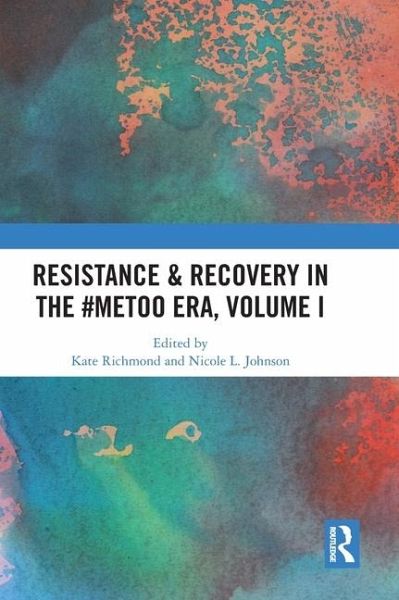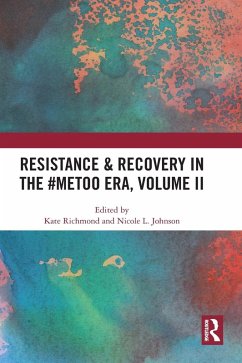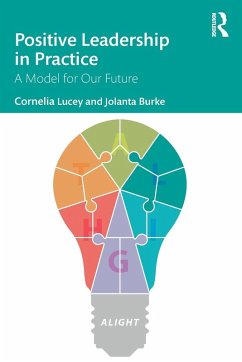
Resistance & Recovery in the #MeToo era, Volume I
Versandkostenfrei!
Versandfertig in 6-10 Tagen
154,99 €
inkl. MwSt.
Weitere Ausgaben:

PAYBACK Punkte
77 °P sammeln!
Using an intersectional approach, this book amplifies the voices of those who were and continue to be at the frontlines resisting and responding to sexual violence during the rise of digital feminist movements, including #NoMore, #TimesUp, and most notably #MeToo.This book outlines the current socio-political landscape, including increased visibility of movements such as #NoMore, #TimesUp, and most notably #MeToo, and the public showcase of accused perpetrators becoming elected to the highest offices in the United States (e.g., Brett Kavanaugh's election to the Supreme Court, Donald Trump's el...
Using an intersectional approach, this book amplifies the voices of those who were and continue to be at the frontlines resisting and responding to sexual violence during the rise of digital feminist movements, including #NoMore, #TimesUp, and most notably #MeToo.
This book outlines the current socio-political landscape, including increased visibility of movements such as #NoMore, #TimesUp, and most notably #MeToo, and the public showcase of accused perpetrators becoming elected to the highest offices in the United States (e.g., Brett Kavanaugh's election to the Supreme Court, Donald Trump's election to the Presidency). It offers note to how this political landscape has impacted survivors and therapists, alike. The first of the two volumes include 10 chapters that provide a critique of the silencing of survivors who are marginalized (e.g., women of color, trans, and queer survivors) within the current movements and offer recommendations for how to center their experiences through an intersectional approach.
Both the volumes together cover a wide range of perspectives that bring to light the solidarity that was built among survivors, regardless of identity and experience, within the current socio-political climate while continuing to center the voices of those who are most often marginalized. The chapters in this book were originally published as a special issue of Women & Therapy.
This book outlines the current socio-political landscape, including increased visibility of movements such as #NoMore, #TimesUp, and most notably #MeToo, and the public showcase of accused perpetrators becoming elected to the highest offices in the United States (e.g., Brett Kavanaugh's election to the Supreme Court, Donald Trump's election to the Presidency). It offers note to how this political landscape has impacted survivors and therapists, alike. The first of the two volumes include 10 chapters that provide a critique of the silencing of survivors who are marginalized (e.g., women of color, trans, and queer survivors) within the current movements and offer recommendations for how to center their experiences through an intersectional approach.
Both the volumes together cover a wide range of perspectives that bring to light the solidarity that was built among survivors, regardless of identity and experience, within the current socio-political climate while continuing to center the voices of those who are most often marginalized. The chapters in this book were originally published as a special issue of Women & Therapy.














